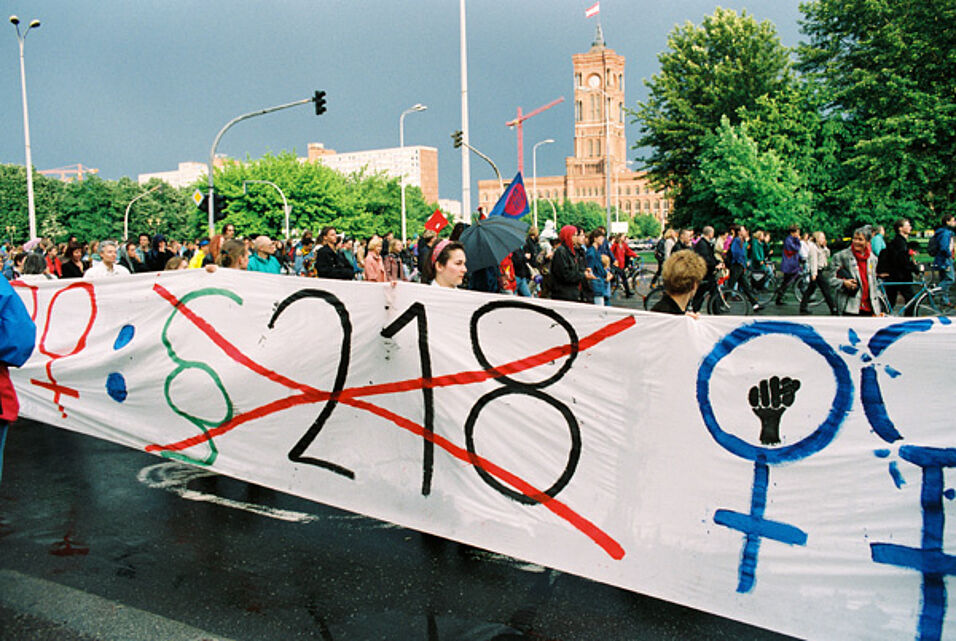Do, 7. April 2022, 12:00 (MET)
Online via Zoom: https://tinyurl.com/2ak948he
Meeting-ID: 654 6988 2003
Kenncode: 184313
Reunification has a complicated place in the histories of gender and feminism in Germany. At once a moment of hope and the possibility of feminist solidarity, it quickly became a time of intense concern and anxiety, and ultimately, of loss and confrontation with the divisions that remained between women from across the Iron Curtain. Indeed, much of the scholarship on reunification and the end of the Cold War frames it as a patriarchal and nationalistic process that curtailed women’s rights and opportunities. In this vein, scholars have typically labelled East German women as the ‘losers’ of reunification. Focusing on the feminization of unemployment and the failed campaign of East and West German feminists to extend the socialist abortion law into the new German state, scholars, writing both at the time and after, have taken a very narrow view on the negative impact of reunification on women. This paper revisits the notion of women as the ‘losers’ of reunification in light of developments in the protection of women from violence. While reproductive rights were not liberalized as feminists hoped, the same cannot be said for domestic violence activism. In marked contrast to abortion reform, reunification revitalized work against gender violence and some of the biggest developments in domestic violence activism since the opening of the first women’s shelter in Germany in 1976 emerged after the Wende. But why was this case? And what do the comparative fates of feminist campaigns reveal about the nature of women’s rights in reunified Germany?
Dr. Jane Freeland is a research fellow at the German Historical Institute London. She has spent the past three years coordinating the International Standing Working Group in Medialization and Empowerment, a major international project in the history of feminism and the media. Her research focuses on feminist activism against domestic violence in East and West Germany, and media representations of women and feminism. Her monograph, Feminist Transformations: Domestic Violence in Divided Berlin, 1969-2002, is forthcoming with Oxford University Press.

